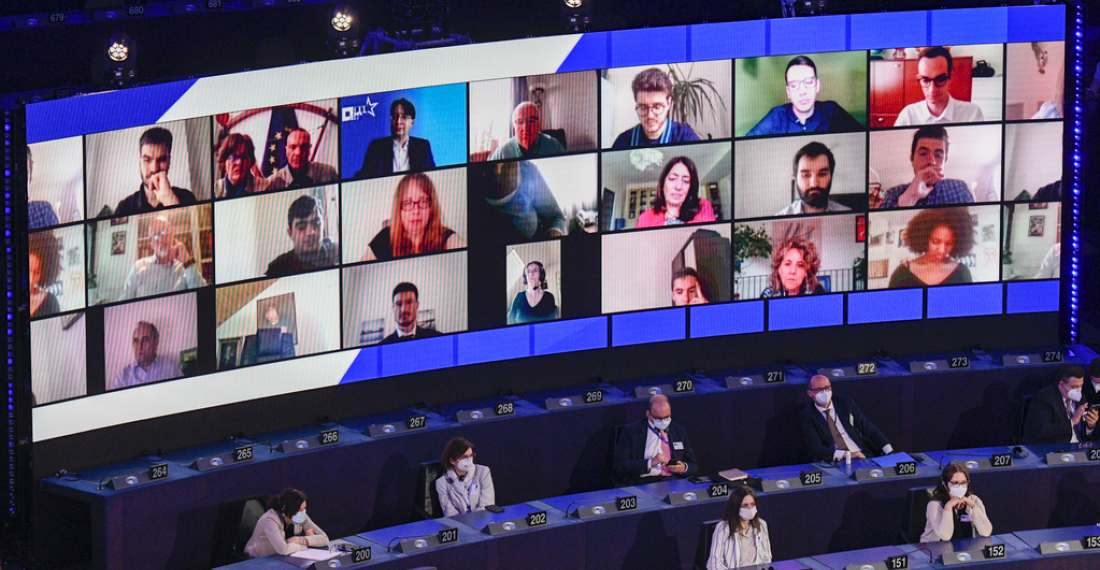Last Saturday (19 June) the inaugural plenary session of the Conference on the Future of Europe took place in the European Parliament building in Strasbourg.
During the session, representatives from all three European Union institutions met with representatives of national parliaments to discuss various topics related to the EU's future and to “define a new vision for Europe’s future”.
The plenary session was also attended by EU Commission Vice-president Dubravka Šuica and Ana Paula Zacarias, Secretary of State for European Affairs in Portugal, which currently holds the rotating presidency of the Council of the EU.
The meeting brought together 108 representatives of the European Parliament, 54 from the Council and three from the European Commission. At the same time, there were also 108 representatives of national parliaments. The discussions at this meeting focused on issues that citizens had contributed to the digital citizens' platform that the European Commission had previously launched for the Conference.







